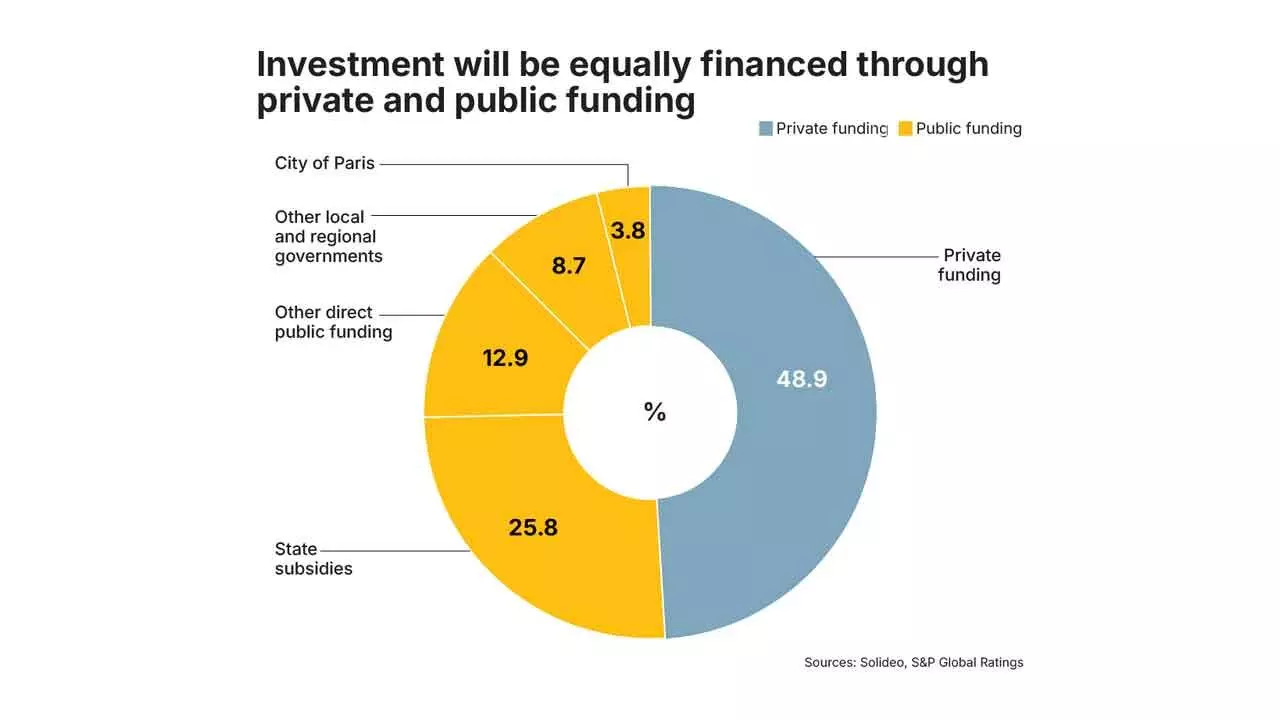France to gain economic ground, thanks to Paris Olympics 2024
Paris got $1.7 billion; 2028 LA and 2032 Brisbane Games will garner $1.8 billion apiece
France to gain economic ground, thanks to Paris Olympics 2024

In line with the IOC’s strategic roadmap, Olympic Agenda 2020, the Paris 2024 organisers planned conduct of the mega event with social, environmental and economic responsibility, which have benefitted the local population
Irrespective of whether the organisers make a profit or not, myriad proponents argue that the very conduct of the Games will leave a positive economic legacy for the host city.
An independent study by the IOC concluded that as per the initial estimates, the Paris Games 2024 is set to end up generating between $7.3 billion and $12.1 billion for the city and surrounding Île de France region between 2018 and 2034.
The main sources of income for the local committees include by way of domestic sponsorships, ticketing, licensing within the host country, hospitality and merchandising. As IOC revenues increase, local organizers also get more of that pot.
Paris gets $1.7 billion for this edition, while the 2028 Los Angeles Games and the 2032 Brisbane Games are to garner $1.8 billion each.
“As the first Olympic Games aligned with Olympic Agenda 2020, Paris 2024 is proving that the Games can bring substantial economic benefits to their hosts, while being socially and environmentally responsible. These truly adapt to the needs of the host and to the times we live in, creating an impactful legacy long after the sporting competitions have ended,” says Christophe Dubi, Olympic Games Executive Director.
French growth will get a lift from the Olympics, says Bank of France, which forecasts that the GDP will rise between 0.35 per cent and 0.45 per cent.
Spanning the period from 2018 to 2034, the net impact comes from an external injection of economic resources within the Île de France region, which would not have happened without the Games.
This will be pronounced in tourism, construction and organising the extravaganza, constituting 30, 28 and 42 per cent of the net economic impact, respectively.
Of the 3.1 million tickets issued for Games, some 64 per cent have been taken by the French, meaning that a substantial 36 per cent are foreigners in town for the Olympics. An estimated EUR 2.6 billion has been the estimated spend by tourists, with or without tickets for the Games, according to the Paris Tourism Office.
Most of the EUR 7 billion in private funding for the Paris 2024 Games comes from media rights, sponsorship and ticketing, but also private investment in long-term infrastructure projects, and includes an IOC contribution of $ 1.7 billion in cash and services.
It is estimated that for each euro of public spending there is a leverage effect of three euros of economic impact. Around 80 per cent of the public investment is going to Seine-St-Denis, one of the youngest and most disadvantaged departments in France. The Olympic Village, for example, situated in Seine-Saint-Denis, will provide 2,800 housing units and two new schools, benefitting 6,000 residents.
In line with the IOC’s strategic roadmap, Olympic Agenda 2020, the Paris 2024 organisers planned conduct of the mega event with social, environmental and economic responsibility, which have benefitted the local population.
A good augury is that the measures have entailed a 50 per cent reduction in carbon emissions compared to previous Games, and the implementation of a “less is more” strategy.
Innovative measures were taken very early, with the Paris 2024 Social Charter signed in 2019 with trade unions and employer organisations.
A first in Olympic history, the Social Charter outlines 16 commitments, including exemplary working conditions, a commitment to social inclusion, and a focus on small and medium-sized businesses.
Paris 2024 and Solideo (the Olympic Delivery Authority) have implemented a large number of initiatives, unprecedented for such a major event, to ensure that the EUR five billion of contracts benefit the entire economic fabric and all businesses, in particular very small ones.
The organisers have made use of the Games to elevate the profile of local companies globally, with 90 per cent of the service providers being French.
The period from 2018 to 2034 was chosen to cover the entire lifecycle of the Paris 2024 Games, including preparation, staging and legacy. In the intermediate scenario, some 84 per cent of the impact was felt within the initial preparation and implementation phases until 2024, with the remaining 16 per cent coming in the final legacy phase.

